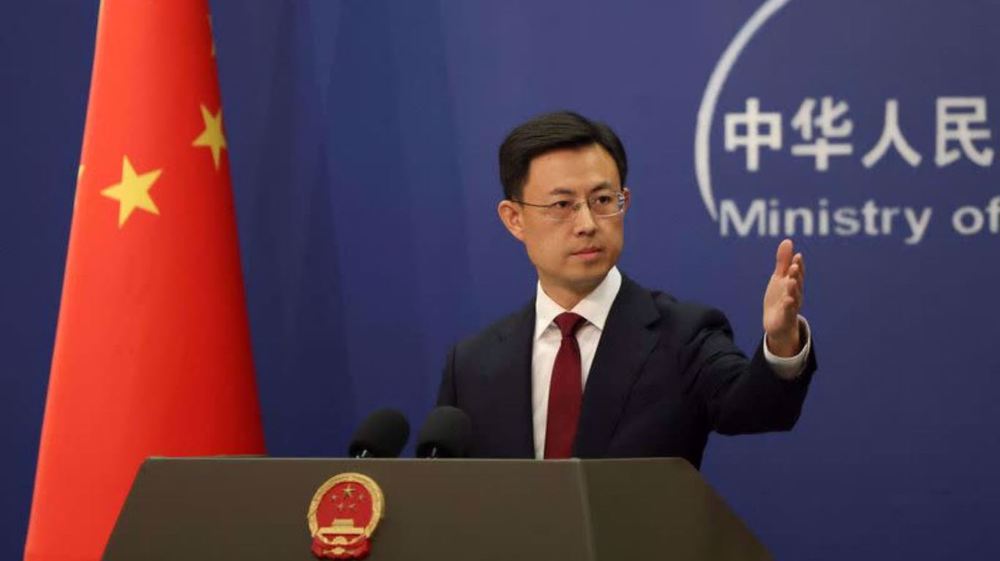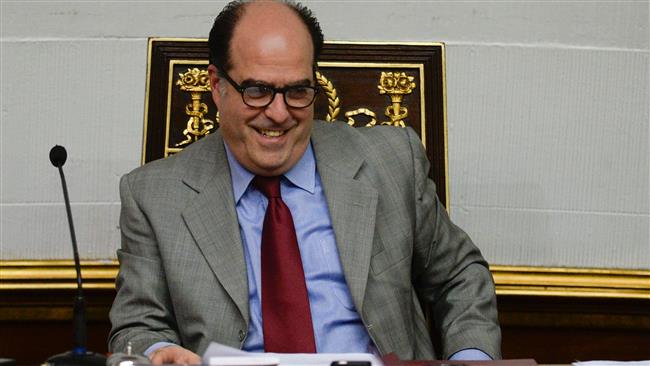Maduro claims is committed to dialog with opposition
Venezuela’s President Nicolas Maduro says he remains committed to dialog and is ready to resume talks with the opposition to resolve matters in the country.
During his annual presidential address on Sunday, Maduro reaffirmed “his commitment to dialog and to harmonious, balanced, constitutional solutions.”
The opposition, which accuses the president of violating the constitution, has ruled out a return to the negotiations. But during his speech, Maduro said mediators will resume efforts to “launch political dialog for ensuring peace in Venezuela.”
Advocating ‘dialog’ while avoiding the parliament
Venezuela has been experiencing upheaval over a series of issues, including a clumsy replacement of bank notes causing cash shortages, and acute shortages of basic goods, itself a result of a deep economic crisis.
Despite his claim of commitment to dialog with the opposition, Maduro refused to face his opponents on Sunday by delivering the annual address at the Supreme Court instead of the parliament.
Opposition lawmakers said he violated the constitution, which obligates the presidential address to be delivered at the parliament. “This confirms that Maduro is acting outside the constitution,” said the new opposition speaker, Julio Borges.
Maduro, however, considers the parliament illegitimate since courts allied with him have disqualified some opposition parliament members.
The opposition blames the president for the intense economic crisis and soaring inflation. It has been calling for a popular vote to remove Maduro from office and has called for fresh street protests on January 23.
Opposition-majority lawmakers passed a motion in the National Assembly last week, which says Maduro had effectively “abandoned his post” by failing to resolve the economic crisis. Maduro, however, rejected the allegation and branded it as a “coup” attempt, an accusation that he routinely directs at his opponents.
In his Sunday speech, he confirmed the depth of the economic crisis in the country, saying the year 2016 was “the longest and hardest” for his government.

He vowed to keep “riding out the crisis” through his economic emergency measures, including the extension of food aid programs for the poor. He also announced a 50-percent raise in the minimum wage and pensions last week, a move that has been slammed as a cause for even further inflation.
New banknotes to enter circulation
The socialist president also said new banknotes will enter circulation on Monday, but he also extended the use of the old 100-bolivar banknotes for five more weeks — until February 20.
This is the third time Maduro allows the use of the older bills because of a delay in the arrival of the new banknotes, which, aside from the cash shortage, also caused unrest across the country.
Maduro, blamed the delay on “US Treasury Department sabotage.”
During his Sunday speech, Maduro also denounced a recent extension of a national emergency by the US against his country, saying the move indicated Washington’s “aggressive policy.”
The outgoing administration of President Barack Obama extended the national emergency against the South American country for a second year on Friday. The order allows the president to potentially use national emergency resources against Venezuela, which the US considers as a “threat.”
Maduro claimed on Saturday that Venezuela was under the threat of invasion.

China condemns US decision to punish Venezuelan oil importers

532,000 migrants face deportation after Trump revokes protections

'Brazen theft': Venezuela raps US seizure of plane after high-level talks
Trump threatens additional 50% tariffs on China as trade war escalates
Pro-Palestine activists facing deportation decry German state repression
Netanyahu ‘returned empty-handed’ from US after Trump announced planned Iran talks: Reports
'Stab in the back': Hamas slams PA crackdown on pro-Gaza rallies in West Bank
Saudi police ‘detain’ female pilgrim for displaying Palestinian flag in Mecca
Israel orders 15-day ban on Ibrahimi Mosque director in al-Khalil
More intl. students face deportation amid Trump's crackdown on pro-Palestine activism
Trump's tariffs hitting EU exports to US











 This makes it easy to access the Press TV website
This makes it easy to access the Press TV website